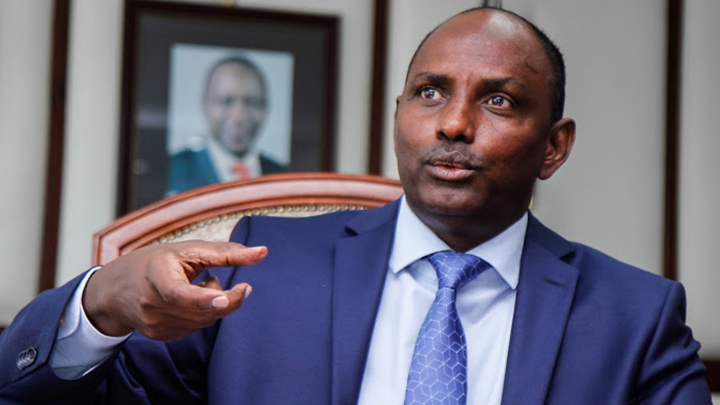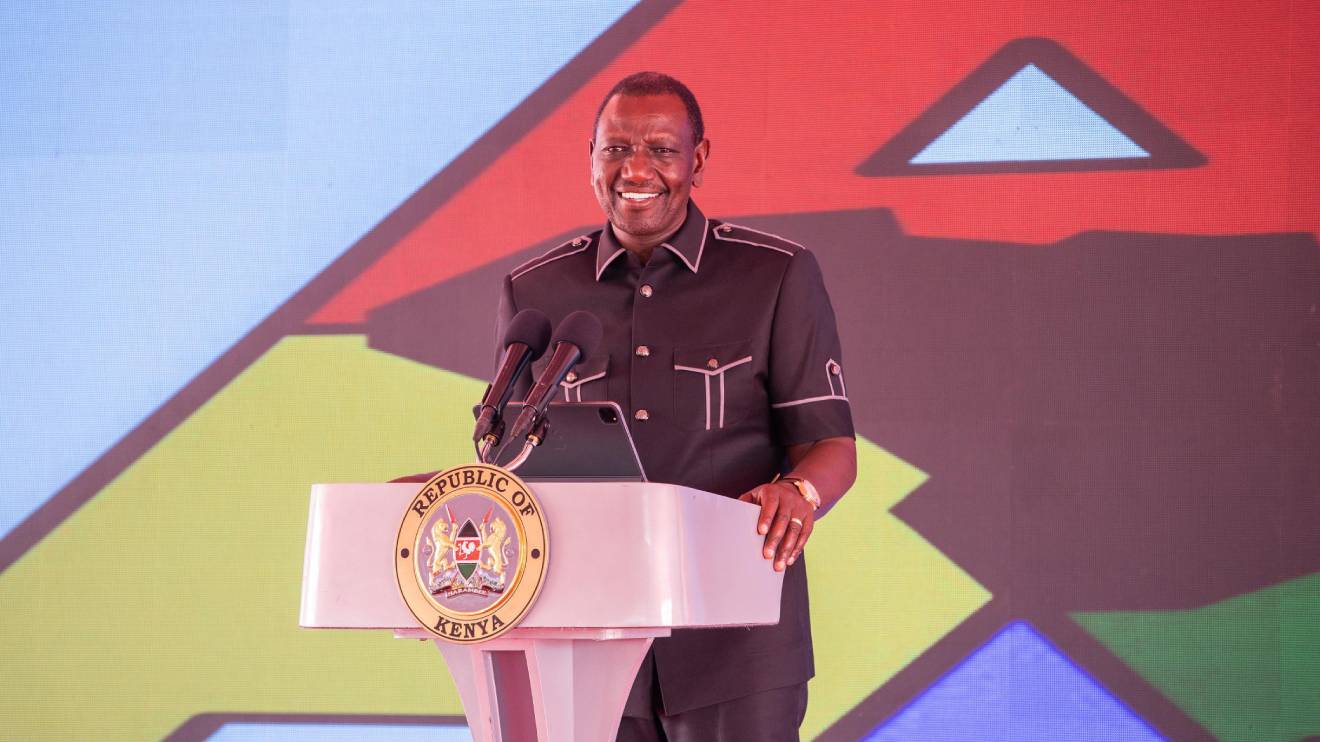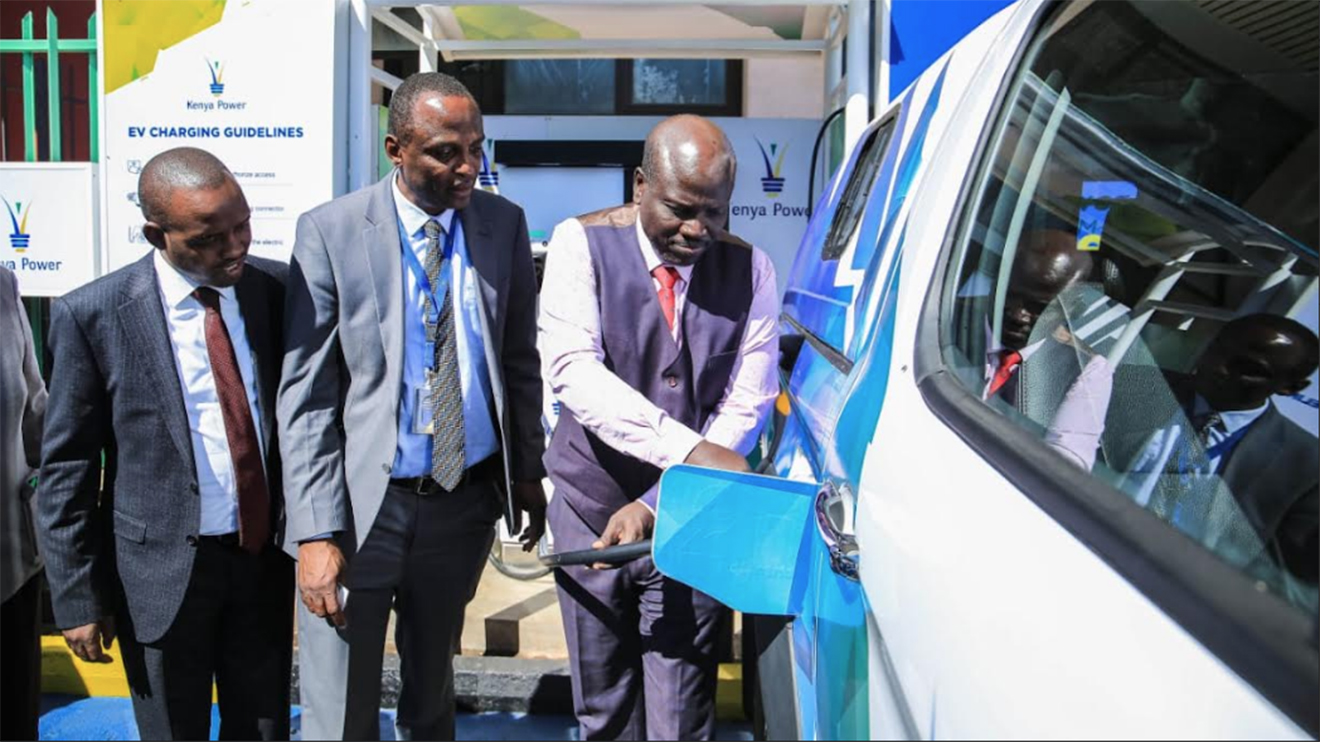STATEMENT BY AMB. UKUR YATANI ON CLAIMS OF COERCION BY CONTROLLER OF BUDGET
Allegations by the Controller of Budget that I exerted pressure on her to make “some payments” while serving as the Cabinet Secretary for The National Treasury, are false, malicious and actionable in law.
Her submissions to parliament depicted my actions as Cabinet Secretary for the National Treasury as designed to facilitate the theft of public funds.
This depiction is libelous and defamatory to my character and professional service to the public in many capacities.
I have instructed my lawyers to study her utterances and advice on a law suit against her person.
Read More
I want to state four things regarding her submissions as a way of bringing truth and fact to bear on this matter.
Article 223 of the 2010 constitution empowers the Cabinet Secretary for the National Treasury to authorize expenditures that have not been appropriated by Parliament, in certain situations, without the approval of Parliament.
Once such funds are committed, Article 223 (2) provides that parliamentary approval is sought post-facto within a period of two months.
This is a constitutional fact and practice. For the Controller of Budgets to suggest that I pressured her to authorize “some payments” without parliamentary approval is therefore calculated malice.
Using the same constitutional instruments at Article 223, the National Treasury recently sought the approval of expenditure amounting to Sh127.5 Billion for the national government through a supplementary budget that was passed last week.
The expenditure was approved by the Controller of Budgets using the same constitutional provisions that applied to the said Ksh15 billion that I had approved and which she now says are irregular.
This begs the question: What makes this approval of Ksh15 billion ‘sneaky’ and that of the Sh127.5 billion before parliament and mostly under the current government legitimate? Yet they both used the same constitutional path.
This suggests some form of targeted malice and selective application of her discretion to shield herself from the uncertainty of regime change.
Article 223(2) requires that any expenditure not appropriated by Parliament, but deemed necessary for the running of government can be incurred and approved by parliament post-facto.
The said Ksh 15 billion was approved by parliament last week as part of the Ksh 127,5 Billion Supplementary Budget presented by the current CS Treasury on 31st January 2023.This was accented into law by H.E President Ruto on March 7th 2023.
If indeed the said Sh15 billion was approved with the intention of stealing public funds, why did it find its way into the current Supplementary Budget? The Controller of Budgets is completely briefed on this by virtue of her office.
And that is why her submissions to parliament were ill-intent and bent on mudslinging the former administration. This can only be a case of classic cherry-picking.
The Controller of Budget insinuated that there was a rush to have these funds approved with the intention of stealing from the public.
Yet the truth is that these funds were in respect of Fuel and Maize subsidies.
This was to cushion families during the uncertain period of unprecedented high food and fuel prices occasioned by both external and internal environments.
The funds were also allocated to the construction of Lamu-Garissa and Garissa-Isiolo Roads. The contractors had abandoned work and needed their bills paid.
This was a priority of a national security nature. Largely because of the security fragility of the spaces these roads are located and therefore the government had the responsibility to secure these spaces at all times.
The funds were also allocated to the construction of modern referral hospital facility for the Kenya’s Defence forces.
This facility was recently opened by H.E President Dr. William Ruto. If indeed the said Ksh15 billion was stolen, how did the President commission this hospital?
If there is any doubt in the mind of the public regarding the said expenditure, I invite the constitutional office of the Office of Auditor General to securitize this expenditure. And I am confident that she will vindicate my actions.
Just to mention, immediately after the 2022 election, a request on behalf of the current Deputy President was presented to my office under the same article 223 for approval and disbursement of Ksh1.59 Billion for his office use.
It included Ksh300 million for cars, and Ksh330 million for hospitality, a request that I did not grant in full but considered an amount of Kshs 500 Million due to the financial constraints we had at that time.
This information like all others are in public domain and I have nothing to hide because of the nature of operations at the national treasury.
And the question it begs is this: Now that the Controller of Budgets works under a new administration, has she ‘weaponized’ her office to get back at those seen as a stumbling block to her?
Is she doing politics through calculated malice and selective application of the constitutional procedure articulated at Article 223 of the constitution? This is the question the public jury should answer.
Conclusion. In authorizing the questioned expenditures all necessary provisions of Article 223 of the 2010 constitution were adhered to.
These expenditures and projects were exhaustively discussed and necessary approvals granted by the concerned internal organs of government including the Cabinet and the National security council, and appropriate communications made to the National treasury for actions.
Approval of these expenditures were therefore not haphazard nor prerogative of the Cabinet secretary for the National Treasury.
It’s also important to mention that expenditures of public funds are incurred and accounted for to the relevant bodies including the Auditor-General by the principal secretaries, who are the Accounting Officers of the various ministries and departments and NOT by the National treasury or the Cabinet secretary for the National Treasury.
As an independent office, the Controller of Budget owes Kenyans an explanation as to why she released exchequer to the Accounting officers of ministries if in her view they were illegal, not forgetting that she gave her approvals in writing both to the National treasury and in her official communication to the National Assembly.
Her appearance before a committee of parliament to contradict her earlier position shows about the caliber and her suitability for an important office like the one she’s holding.
Similarly, the purported coercion through WhatsApp messages was a selective devise.
She should reveal to the public how many times I pressured her because she could not keep up with the speed of the then administration.
It’s clear that these malicious allegations and line of narratives are politically choreographed and designed to hurt innocent public servants due to change of regime, which unfortunately, will have a long term unhealthy effects of precipitating fear and inactions in future.
Finally, for records, Governments are perpetual entities, and respect and full protection of public servants while undertaking lawful discharge of their mandates remains the hallmark of a decent society.
Amb Ukur Yatani
FORMER CS/THE NATIONAL TREASURY







-1679766659.jpg)

-1713985974.jpg)

